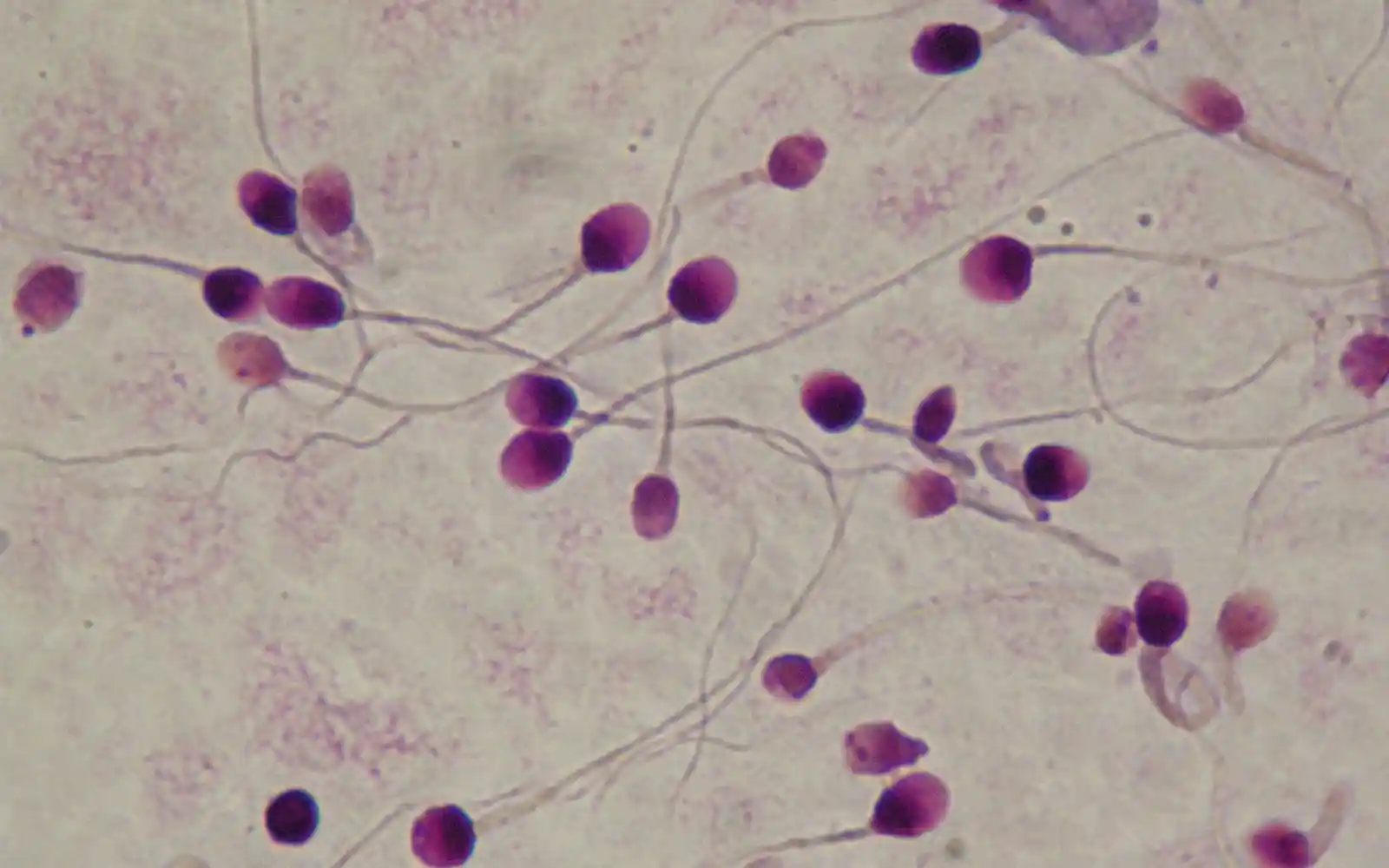Treatments for anti-sperm antibodies (ASAb) rely on altering the unwanted immune response to sperm. ASAb can affect either partner, but it’s much more likely to affect men, and it’s much easier to check them for anti-sperm antibodies with an extension of a standard semen sample.
Men normally have a barrier between their blood and their testes which physically separates their sperm from their immune system. If the immune system comes into contact with sperm, an immune response can be triggered that results in anti-sperm antibody production. The ASAb then physically attach themselves to the plasma membrane of sperm, which changes the properties of the membrane and encourages the sperm to “clump” together. They become much less mobile, and the chances of them reaching or fertilising an egg fall significantly.
- Over 50% of men with low sperm motility carry ASAb i
- About 66% of men with no live sperm carry ASAb ii
- Up to 70% of men with a vasectomy or a vasectomy reversal have ASAb iii
It’s also possible for women to develop antibodies to sperm, and they’ll be found in her blood and/or cervical mucus. These aren’t specific to just one man’s sperm and are more likely when:
- Their male partner has ASAb
- They have more male sexual partners iv
Treatment Options
General health affects fertility and immune health, and it’s possible to reduce ASAb levels with herbal combinations according to personal dynamics, as outlined by the morefertile personal fertility profiles (PFPs).
Herbal options
The herbal combinations we mention are only available from registered herbalists.
| PFP | Possible Semen Issues | General Symptoms | Herbal Combination |
|---|---|---|---|
| No clear PFP | ASAb in semen samples may be the only issue. | Nothing specific | ASAb #1 |
| Cold | Motility and morphology may be poor. Semen may be thin, watery and feel cold. | Cold, weak lower back and knees, aversion to cold, apathy. Coldness and dampness of the genitals and a frequent need to urinate. | ASAb – Cold |
| Hot | Samples are often small with many abnormal sperm. | Hot and sweaty at night. Irritability that’s worse when tired. Over-busy mind, anxiety. |
ASAb – Hot |
| Hot & Fluids | Thick or cloudy semen. Low sperm count. | Obesity, metabolic syndrome, inflammation or infections | ASAb – Hot/Fluids |
| Flow | May have many abnormal sperm and poor motility. | Moodiness, headaches and discomfort that comes and goes. | ASAb – Flow |
Medications
The standard treatment for antisperm antibodies is immunosuppression with high doses of corticosteroids. This reduces ASAb and temporarily “restores” male fertility. However, corticosteroids are also a cause of male infertility and bring other significant and long-lasting side effects.
Assisted Conception
Sperm washing before Intra-Uterine Insemination (IUI) or IVF is one option, and it helps to reduce ASAb numbers in semen samples. However, there are two significant drawbacks:
- Sperm washing reduces sperm motility
- ASAb and antisperm antigens are strongly attracted to each other, and the IUI needs to avoid the woman’s cervical mucus by placing sperm directly into the uterus.
ii“Immunologically conditioned fertility disorders in men – Experience of the Immunobiological Department of the Institute for Maternal and Child Care”, Madar j, et al, Ceska Gynekologie Dec:69. Supp. 1:15-20.2004
iii “Relationship between anti-sperm antibodies and testicular histologic changes in humans after vasectomy”, Jarow JP et al, Urology. 43(4):521-4, 1994
iv“Reproductive failure and antisperm-antibody production among prostitutes”, Bahraminejad R et al, Acta Obstetrica et Gynaecologica Scandinavica. 70(6): 483-5. 1991




